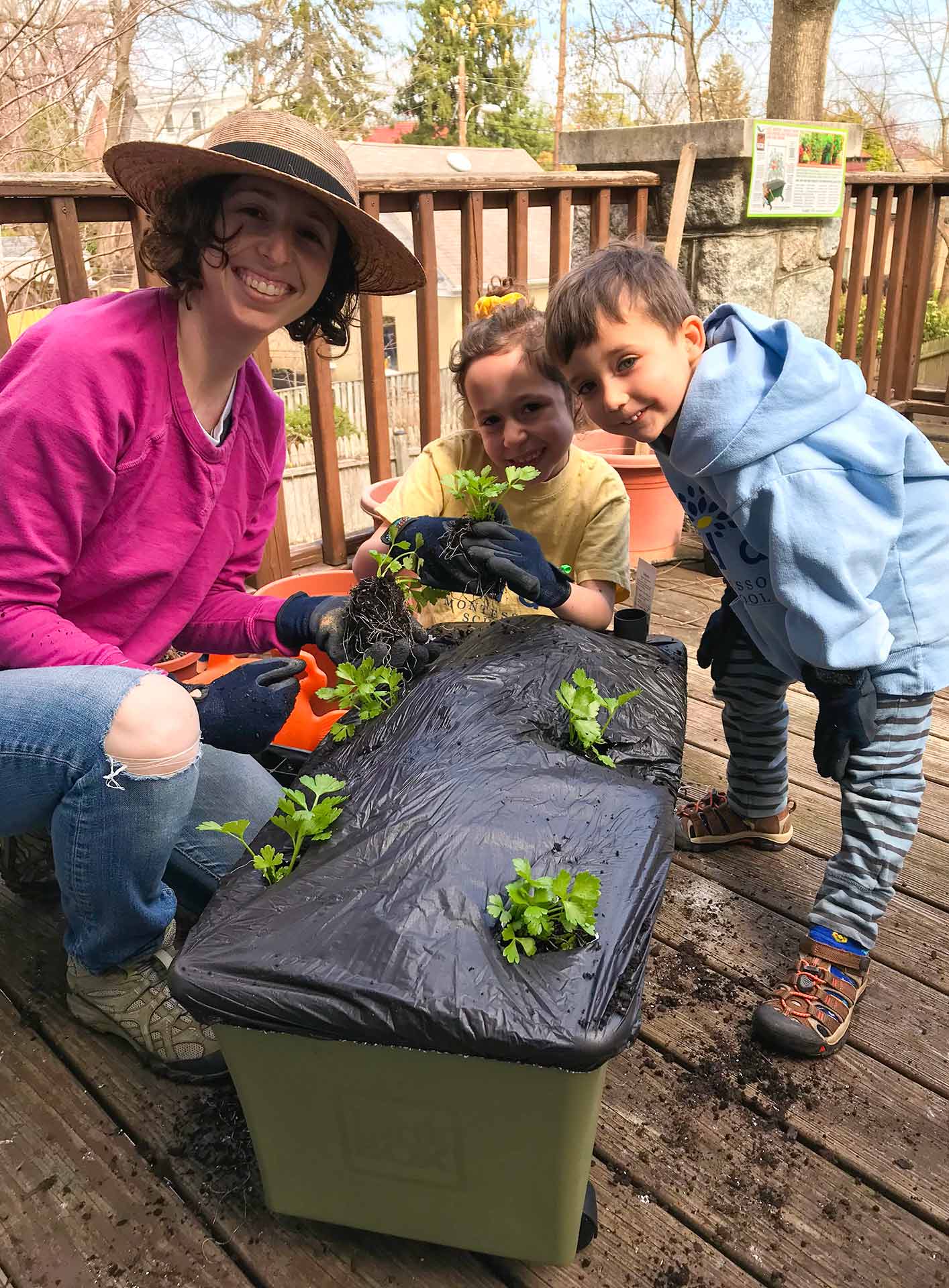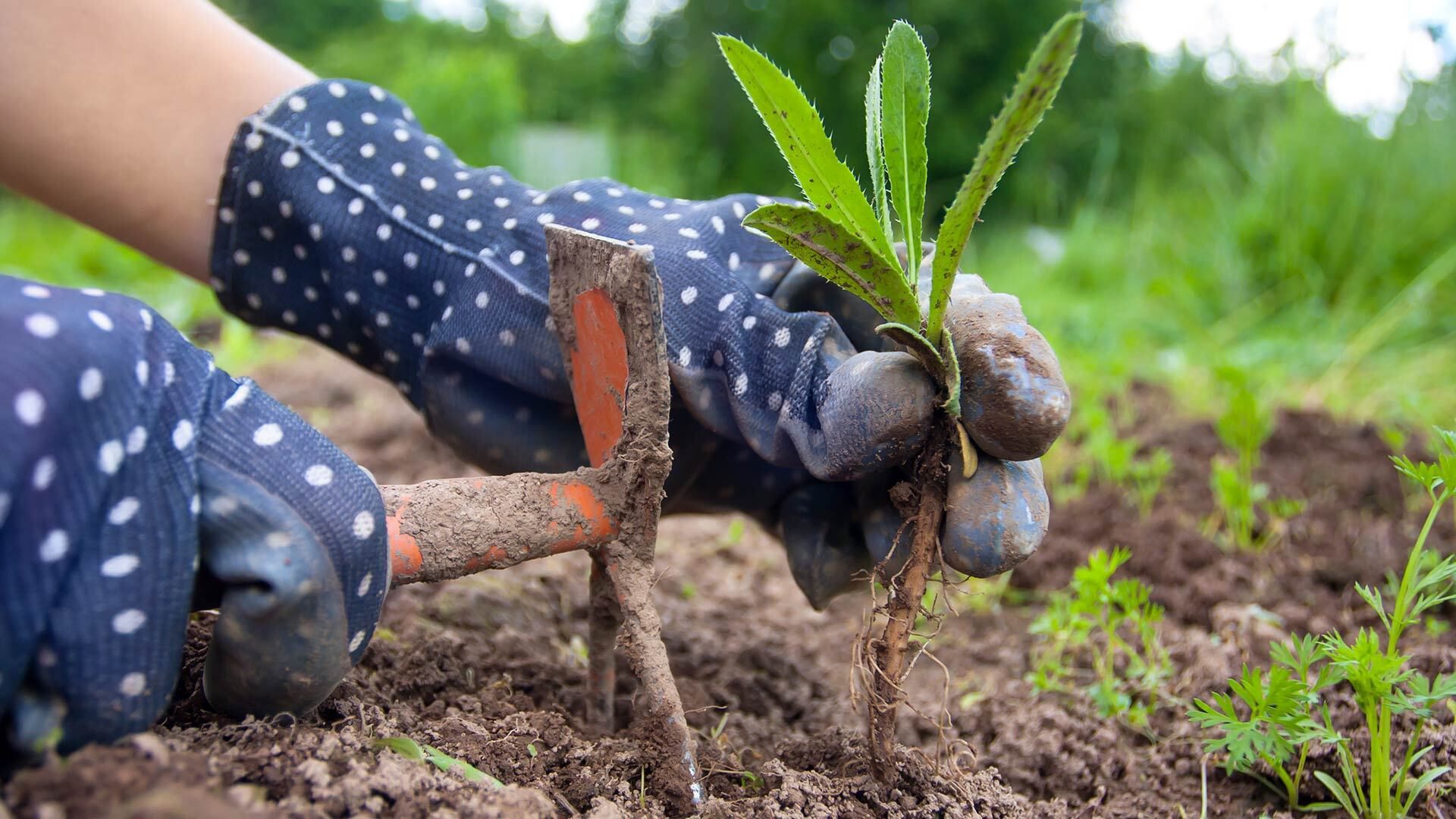- September 03, 2020
- By Annie Krakower
It was a sunny mid-March day, the first of many days at home for Rachel Rosenberg Goldstein and her family following the coronavirus’ unwanted arrival in the U.S., when they turned to what’s become a common COVID coping mechanism: gardening.
As quarantine continued and their leafy greens grew, so too did the assistant professor’s budding curiosity about the hobby’s healing potential.
Rosenberg Goldstein has launched a nationwide survey to dig deeper into the interplay between gardening and mental health and how habits might have changed since the pandemic’s onset. With more than 1,000 responses from across the U.S. already, the goal is to use the results to create targeted educational materials about the potential health benefits of a green thumb.
 “(Gardening has) been a way for my family to come together, something to look forward to instead of focusing on very real difficulties,” said Rosenberg Goldstein, an assistant professor in the Maryland Institute for Applied Environmental Health in the School of Public Health, who’s been tending to the container garden she planted on her deck with her two young kids. “I wanted to do something positive during this really stressful time and bring something that has helped me during this pandemic to others.”
“(Gardening has) been a way for my family to come together, something to look forward to instead of focusing on very real difficulties,” said Rosenberg Goldstein, an assistant professor in the Maryland Institute for Applied Environmental Health in the School of Public Health, who’s been tending to the container garden she planted on her deck with her two young kids. “I wanted to do something positive during this really stressful time and bring something that has helped me during this pandemic to others.”
The questionnaire launched online on June 16 and includes questions to gauge how green respondents’ thumbs are this year compared to 2019; others cover personal experiences with COVID-19 and anxiety symptoms.
Naomi Sachs, assistant professor of plant science and landscape architecture at UMD, and Marcus Williams, master gardener coordinator for the city of Baltimore, collaborated with Rosenberg Goldstein and helped her disseminate the survey, which anyone ages 18 and over in the U.S. can complete.
“You see it everywhere, from blogs to newspaper articles, that people are now getting more and more interested in gardening,” Williams said. “They need someone to guide them along their journey. We’ll be able to target some of the issues people are having—issues with gardening, issues with coping.”
So far, results from what Rosenberg Goldstein calls an “unusually enthusiastic response” have shown that participants are generally spending more time outside and more time gardening this year than last, and that gardening is a top-ranked stress management technique.
And while the researchers are seeing an association between gardening and fewer anxiety symptoms, they know more research is necessary to determine if that relationship is causal. With the survey open until next June, they’ll continue to analyze the results and use the data to inform the development of educational and outreach materials, such as virtual workshops, fact sheets or even mailed gardening starter kits.
“It would be interesting to follow how both anxiety symptoms and gardening change,” Rosenberg Goldstein said. “I’ve learned how strong nature is—it continues to thrive even when the human world around it might be turned upside down.”
